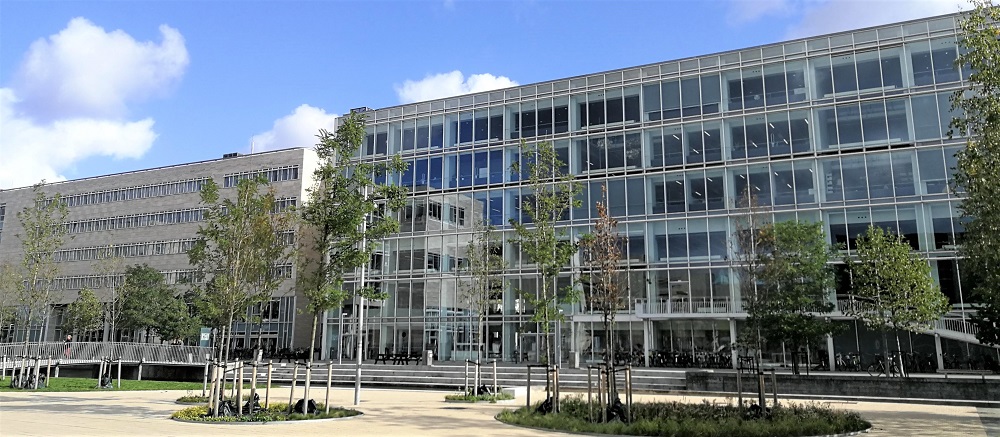About the Centre for Internationalisation and Parallel Language Use (CIP)

Over the last few decades, growing internationalisation and globalisation has increased the need for multilingualism: increasingly, staff and students at the University of Copenhagen (UCPH) need to be able to function in both Danish and English, and sometimes other languages, in their day-to-day work. In order to help staff and students meet the linguistic challenges this situation presents, UCPH has included parallel language use as a separate goal in the university’s general development strategy since 2008. As a means of reaching this goal, UCPH established the Centre for Internationalisation and Parallel Language Use.
A language centre for all UCPH departments
CIP was established as a research-based language centre in 2008 to support the UCPH parallel language strategy.
Today, CIP’s mission is to contribute to optimizing language skills at UCPH and to enable the university to operate smoothly in a linguistically diverse, internationalised and globalised world. This can only be achieved by CIP taking the perspective of the staff and students and developing activities that help them navigate language choices, acquire appropriate terminology and improve their overall language proficiency. The main focus across UCPH is on Danish and English, but in some departments and disciplines other languages are also relevant.
In addition, CIP works closely together with the various administrative units at UCPH in order to assess language use and language challenges and provide a solid basis for management decisions about language use across the university.
Tailored teaching activities
CIP develops language teaching tailored to the specific needs of groups or individuals. In order to gather the information necessary to run such tailor-made language development activities, CIP carries out needs analyses, evaluations and diagnostic tests. This approach allows a user-oriented construction of language teaching that focuses on the needs of each individual. At the same time, it results in the accumulation of an extensive amount of practical knowledge, which is used to further develop future teaching activities.
CIP was founded as a research-supported centre to ensure that:
- The centre’s language teaching is based on the most recent international knowledge and research.
- The development of the teaching activities always considers the users’ current circumstances and needs.
- The courses systematically provide feedback for research purposes, so that experience gained can contribute to the continuing development of new teaching activities and the international dialogue within the field of parallel language use.
Resource and advisory centre
CIP is a resource centre for knowledge and best practice in the fields of parallel language use and language policy. All faculties and departments at UCPH can draw on CIP’s knowledge and experience to ensure the quality of the linguistic dimension of any teaching, research, communication and administration activities. CIP also offers advisory services and carries out needs analyses, evaluations and skills development courses for external partners, typically within the field of education.
Contact CIP
Centre for Internationalisation and Parallel Language Use (CIP)
University of Copenhagen
Faculty of Humanities
Emil Holms Kanal 4
DK-2300 Copenhagen S
Location: Building 23, 4th floor
Telephone: +45 35 32 86 39
E-mail: cip@hum.ku.dk
